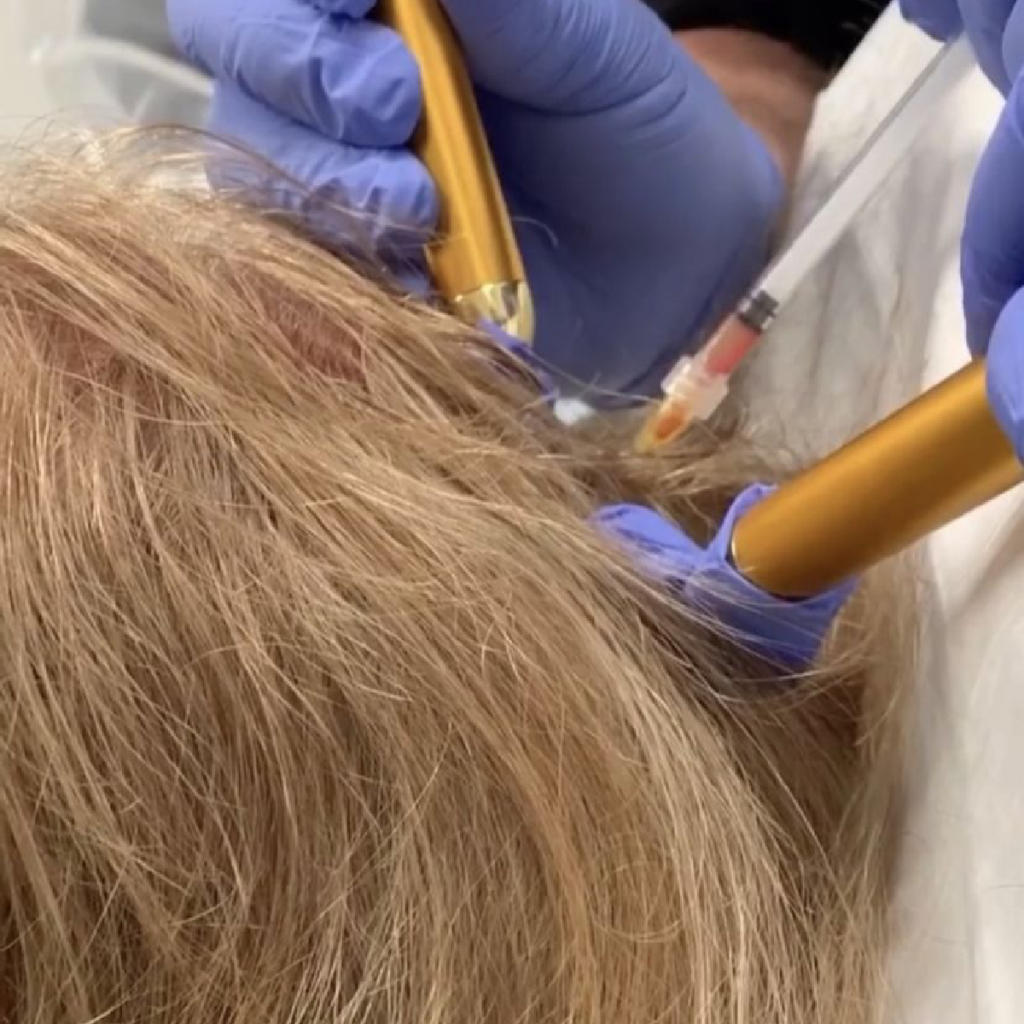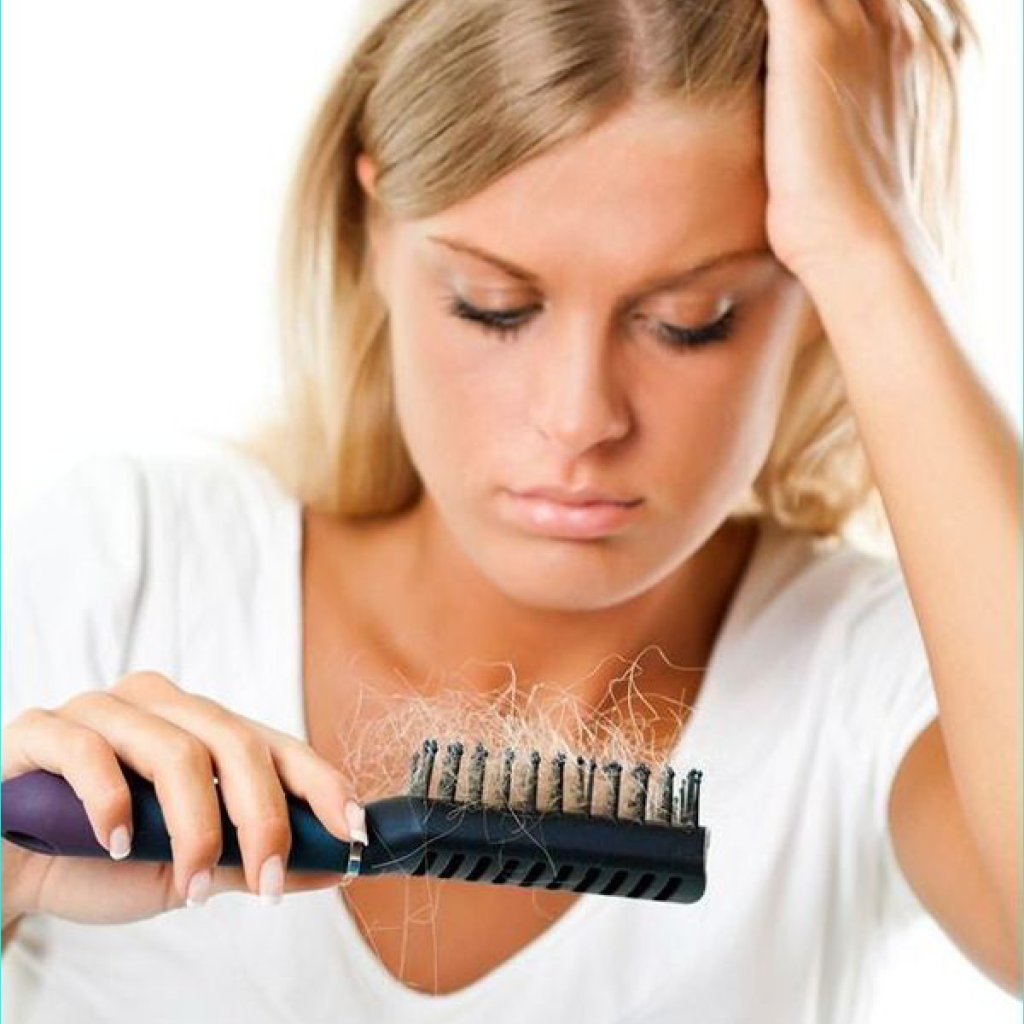Discover the medical conditions and medications that may hinder hair growth.
Are There Medical Conditions or Medications That Hinder Hair Growth?
Have you been finding more and more strands of hair on your brush or pillow lately? Don’t fret just yet! Hair loss can be caused by a variety of factors, including medical conditions and medications. In this article, we’ll dive into the fascinating world of hair growth and explore how certain ailments and drugs can hinder our luscious locks. So, grab a cup of tea, sit back, and let’s uncover the secrets of hair growth!

Understanding Hair Growth: An Overview
Before we delve into the nitty-gritty of medical conditions and medications, let’s first understand the basics of how hair grows. The hair growth cycle consists of four phases: anagen, catagen, telogen, and exogen.
The anagen phase is the active growth phase, where hair follicles produce new hair. This phase can last anywhere from two to seven years, depending on genetics and health factors. During this phase, the hair shaft is continuously lengthening, and the hair follicle is nourished by blood vessels in the scalp. It’s a fascinating process where cells in the hair matrix divide rapidly, pushing older cells up and out, creating the visible part of the hair strand.
The catagen phase follows, signaling the end of active growth. This transitional phase lasts only a few weeks and allows the hair follicle to renew itself. During this time, the hair follicle shrinks and detaches from the blood supply, preparing for the next phase.
After catagen comes the telogen phase, during which the hair follicle is at rest. This phase lasts around three months before hair sheds naturally. It’s important to note that during telogen, the hair follicle is not producing new hair. Instead, it’s taking a break, preparing for the next anagen phase.
Finally, the exogen phase is when new hair starts to grow, pushing out the old hair. This is the phase where we can observe hair shedding, but it’s a normal part of the hair growth cycle. Shedding hair allows room for new hair to emerge and continue the cycle.
The Hair Growth Cycle
Now that we’ve walked through the hair growth phases, you can see it’s a delicate dance of renewal and regrowth. Each hair follicle on our scalp goes through this cycle independently, allowing for a continuous supply of new hair.
It’s worth mentioning that the duration of each phase can vary from person to person. Some individuals may have a longer anagen phase, resulting in longer hair, while others may have a shorter anagen phase, leading to shorter hair length.
Factors Influencing Hair Growth
Several factors can influence hair growth, including genetics, age, hormones, and overall health. Let’s take a closer look at how medical conditions can hinder our journey to fabulous hair.
Medical conditions such as alopecia areata, an autoimmune disorder that causes hair loss in patches, can disrupt the hair growth cycle. In this condition, the immune system mistakenly attacks the hair follicles, preventing them from producing new hair.
Hormonal imbalances, such as those experienced during pregnancy or menopause, can also affect hair growth. Fluctuations in hormone levels can lead to excessive shedding or thinning of hair.
Nutritional deficiencies can play a role in hair health as well. A lack of essential nutrients like iron, biotin, and vitamins A, C, and E can weaken the hair follicles and result in brittle or thinning hair.
Stress is another factor that can impact hair growth. Chronic stress can disrupt the normal hair growth cycle, leading to increased shedding or slower hair regrowth.
Additionally, certain medications and treatments, such as chemotherapy, can cause temporary hair loss. These treatments target rapidly dividing cells, including those in the hair follicles, resulting in hair thinning or complete hair loss.
By understanding the intricacies of hair growth and the various factors that can influence it, we can better appreciate the importance of maintaining a healthy lifestyle and seeking appropriate medical care when necessary. Remember, our hair is not just a reflection of our style, but also a reflection of our overall well-being.
Medical Conditions That Can Affect Hair Growth
Thyroid Disorders and Hair Loss
Oh, the thyroid! This small but mighty gland plays a vital role in regulating various bodily functions, including hair growth. When the thyroid goes haywire, either producing too much or too little thyroid hormone, hair loss can become an unwelcome guest. So, if you’ve noticed excessive shedding or thinning locks, it might be worth getting your thyroid levels checked.
The thyroid gland, located in the neck, is responsible for producing hormones that control metabolism, growth, and development. When the thyroid is overactive, a condition known as hyperthyroidism, it can cause hair follicles to enter a resting phase, leading to hair loss. On the other hand, an underactive thyroid, or hypothyroidism, can disrupt the hair growth cycle, resulting in thinning hair.
Thyroid disorders not only affect hair growth but can also manifest in other symptoms such as fatigue, weight changes, and mood swings. It’s essential to consult with a healthcare professional who can perform the necessary tests to determine if your thyroid is functioning optimally.
Autoimmune Diseases and Hair Growth
Our immune system is like an army protecting us from enemies, but sometimes it gets a little too trigger-happy. Autoimmune diseases, such as alopecia areata, attack hair follicles, resulting in patchy hair loss. It’s as if your immune system has turned into an overzealous barber! But fret not, modern medicine has ways to help regrow those lost locks.
Alopecia areata is an autoimmune condition where the immune system mistakenly targets hair follicles, causing hair loss in small, round patches. The exact cause of this condition is still unknown, but it is believed to be a combination of genetic and environmental factors. While there is no cure for alopecia areata, various treatment options, such as corticosteroids and immunotherapy, can help stimulate hair regrowth.
Other autoimmune diseases, such as lupus and Hashimoto’s thyroiditis, can also lead to hair loss. These conditions cause the immune system to attack healthy cells and tissues, including hair follicles. Managing these autoimmune diseases with proper medical care and treatment can help minimize hair loss and promote healthier hair growth.
Scalp Infections and Hair Growth
Who wants a party on their scalp? Certainly not the bacteria or fungi causing scalp infections! These uninvited guests can wreak havoc on hair follicles, leading to inflammation and hair loss. It’s like throwing a wild party and leaving a mess behind. If you suspect a scalp infection, seek medical attention to evict those pesky party crashers!
Scalp infections can be caused by various microorganisms, including bacteria, fungi, and viruses. Conditions like scalp folliculitis, ringworm, and seborrheic dermatitis can all result in hair loss if left untreated. These infections can cause itching, redness, and flaking of the scalp, leading to damage to the hair follicles.
Proper diagnosis and treatment of scalp infections are crucial to prevent further hair loss and promote healthy hair growth. Depending on the type and severity of the infection, treatment options may include topical or oral medications to eliminate the infection and soothe the scalp.
Remember, maintaining a healthy scalp is essential for optimal hair growth. Practicing good hygiene, avoiding sharing personal items like combs or hats, and seeking prompt medical attention for any signs of infection can help protect your hair follicles and ensure a luscious mane.
Impact of Medications on Hair Growth
When it comes to battling a serious illness, medications can be a lifeline. However, it’s important to be aware that some medications can have temporary side effects on hair growth. Understanding these effects can help you navigate your journey with confidence and resilience.
Chemotherapy and Hair Loss
Picture this: you’re in the midst of a courageous fight against cancer, and your only ally is medication. Unfortunately, some medications, like chemotherapy drugs, can have a profound impact on hair growth. The powerful chemicals used in chemotherapy target rapidly dividing cells, which include both cancer cells and hair follicles.
As a result, many individuals undergoing chemotherapy experience hair loss. This can be a distressing side effect, as hair is often seen as a symbol of identity and beauty. However, it’s important to remember that hair loss is temporary in most cases. Once the treatment is completed, hair follicles can often regrow, allowing your hair to return to its former glory. So, hang in there, warrior! Remember, bald is beautiful too, and it’s a testament to your strength and resilience during this challenging time.
Blood Pressure Medications and Hair Growth
Managing high blood pressure is crucial for maintaining overall health and well-being. However, it’s worth noting that certain blood pressure medications, such as beta-blockers, have been linked to hair loss. It may seem like a fierce battle between your heart and your hair, but there are steps you can take to address this concern.
If you’re experiencing hair loss while taking blood pressure medications, it’s essential to have an open conversation with your doctor. They can explore alternative options that may have a lesser impact on hair growth. Remember, your doctor is your partner in health, and together you can find a solution that not only protects your heart but also supports healthy hair growth.
Antidepressants and Hair Loss
Dealing with depression can be incredibly challenging, and medications like selective serotonin reuptake inhibitors (SSRIs) are often prescribed to help manage symptoms. While these medications can be highly effective in improving mood and overall well-being, it’s important to be aware of potential side effects, including hair loss.
Although hair loss is a rare side effect of certain antidepressants, it can still be distressing for those experiencing it. It’s crucial to remember that reaching out for help and support is crucial during this time. Your mental health should always be a priority, and there are various treatment options available to address both your emotional well-being and any concerns about hair loss.
Remember, hair loss caused by medications is often temporary, and once you make it through the storm of depression, your hair can find its way back to its glory days. In the meantime, focus on self-care, seek support from loved ones, and explore different coping mechanisms to help you navigate this journey.
How to Identify Hair Loss Due to Medical Conditions or Medications
Symptoms of Hair Loss
Now that we’ve covered the potential culprits, how can we distinguish them from regular hair shedding? Keep an eye out for excessive hair loss, thinning areas, receding hairline, or bald patches. These signs should prompt you to investigate further.
Diagnostic Tests for Hair Loss
Visit your friendly neighborhood dermatologist or trichologist (yes, that’s a hair doctor!) who can perform various tests to identify the root cause of your hair loss. These may include blood tests, scalp biopsies, or even gentle tugs on your hair.
Treatment and Management of Hair Loss

Medical Treatments for Hair Loss
Once you’ve identified the cause, fear not because treatment options abound! From medications that stimulate hair growth to surgical interventions like hair transplants, there’s a solution for every dilemma. Discuss your options with your doctor and tailor a plan suited to your unique situation.
Natural Remedies for Hair Growth
If you prefer nature’s touch, fear not! Several folk remedies and natural treatments claim to promote hair growth. From essential oils to scalp massages, the possibilities are endless. While scientific evidence may be limited, sometimes a little self-care can work wonders for both mind and hair.
So there you have it, the intricate world of hair growth and the potential hurdles it faces from medical conditions and medications. Remember, hair loss is a common phenomenon, and there’s always hope for a comeback. Embrace your unique journey and rock whatever style makes you feel fabulous!





